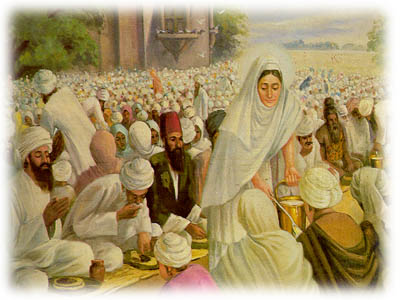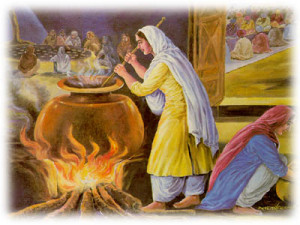
21 May The Ultimate Aim of Seva
Seva comes from the ancient language of Sanskrit meaning, “selfless service.” In the context of Hinduism, it means selfless service rendered as a community action, done for the goodwill and benefit of others. The underlying Vedic philosophy, often quoted by Mahatma Gandhi is “Service to Man is Service to God.” (Nar Seva, Narayan Seva). Some would say it is an inside out approach to living. “Service which is given without consideration of anything in return, at the right place and time to one that is qualified, with the feeling that it is one’s duty, is regarded as the nature of goodness.” — Bhagavad Gita 17.20
The ultimate aim of seva is to get rid of the ego. It brings us to that elevated state of mind and increases our ability to love. True seva has the ability to transform both the giver and the recipient.
To be free from ego, seva should flow out of deep compassion for the pain, hunger, feelings of rejection, loss, or any other problem from which either an individual or a group is suffering. Only then will it benefit the one who serves as well as those receiving the services. That said, care needs to be taken against deciding to engage in a particular service in order to feel important or to gain recognition, gratitude, or any other reward from the beneficiaries, or for spiritual or personal gain of any kind.”
Seva is an offering to the Divine with no thought of receiving anything in return. The very essence of Love is made manifest when we are serving God through our heartfelt actions dedicated to serving the soul of humanity.
Selfless service plays a part in our development toward self-realization. Random acts of kindness transform the mundane through the magic of kind words, thoughts and deeds. In truth, we have all come here to make a positive difference and create a better place for those already here and for all those who will follow in the next generation.
As Sri Sai Kaleshwar states, “While we are here on this planet, we have to do something noble with our lives. Our actions must leave a sweet fragrance and be a great message that lives long after we are gone. This is the dharma of each person. Real moksha (enlightenment) is when someone looks in your eyes with gratitude, because you have done something to remove their suffering.”
----
Support the Monkey
Every product in our articles and interviews is independently selected by (obsessive) editors. Products you buy on Amazon through our links feed the Monkey. Commissions from your Amazon purchases are crucial for us to continue to provide you with the content you love.
Supporting the Monkey costs you nothing – but it is dependent on using our Amazon links.
Click here to go directly to the AMAZON.COM Homepage


